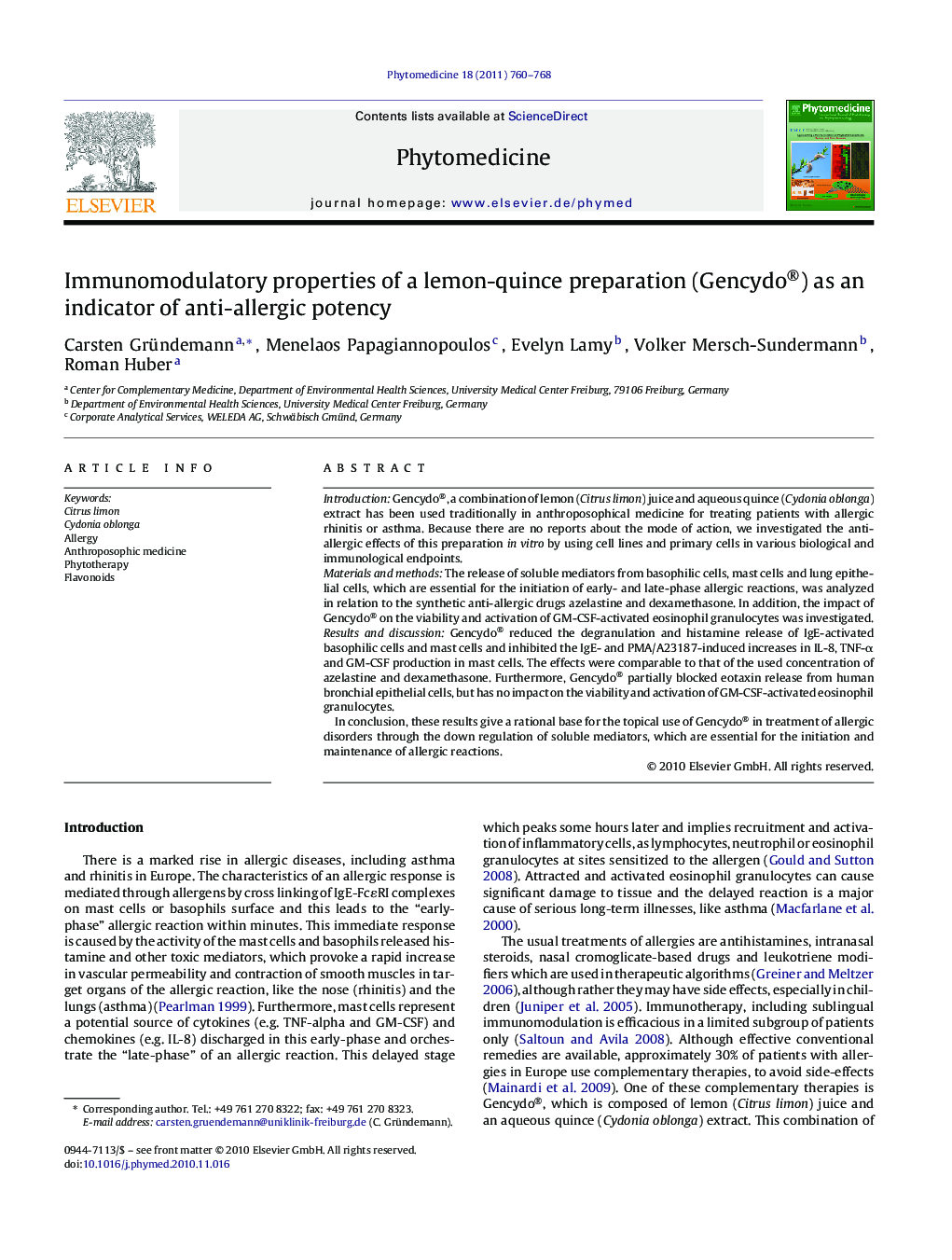| Article ID | Journal | Published Year | Pages | File Type |
|---|---|---|---|---|
| 2496954 | Phytomedicine | 2011 | 9 Pages |
IntroductionGencydo®, a combination of lemon (Citrus limon) juice and aqueous quince (Cydonia oblonga) extract has been used traditionally in anthroposophical medicine for treating patients with allergic rhinitis or asthma. Because there are no reports about the mode of action, we investigated the anti-allergic effects of this preparation in vitro by using cell lines and primary cells in various biological and immunological endpoints.Materials and methodsThe release of soluble mediators from basophilic cells, mast cells and lung epithelial cells, which are essential for the initiation of early- and late-phase allergic reactions, was analyzed in relation to the synthetic anti-allergic drugs azelastine and dexamethasone. In addition, the impact of Gencydo® on the viability and activation of GM-CSF-activated eosinophil granulocytes was investigated.Results and discussionGencydo® reduced the degranulation and histamine release of IgE-activated basophilic cells and mast cells and inhibited the IgE- and PMA/A23187-induced increases in IL-8, TNF-α and GM-CSF production in mast cells. The effects were comparable to that of the used concentration of azelastine and dexamethasone. Furthermore, Gencydo® partially blocked eotaxin release from human bronchial epithelial cells, but has no impact on the viability and activation of GM-CSF-activated eosinophil granulocytes.In conclusion, these results give a rational base for the topical use of Gencydo® in treatment of allergic disorders through the down regulation of soluble mediators, which are essential for the initiation and maintenance of allergic reactions.
